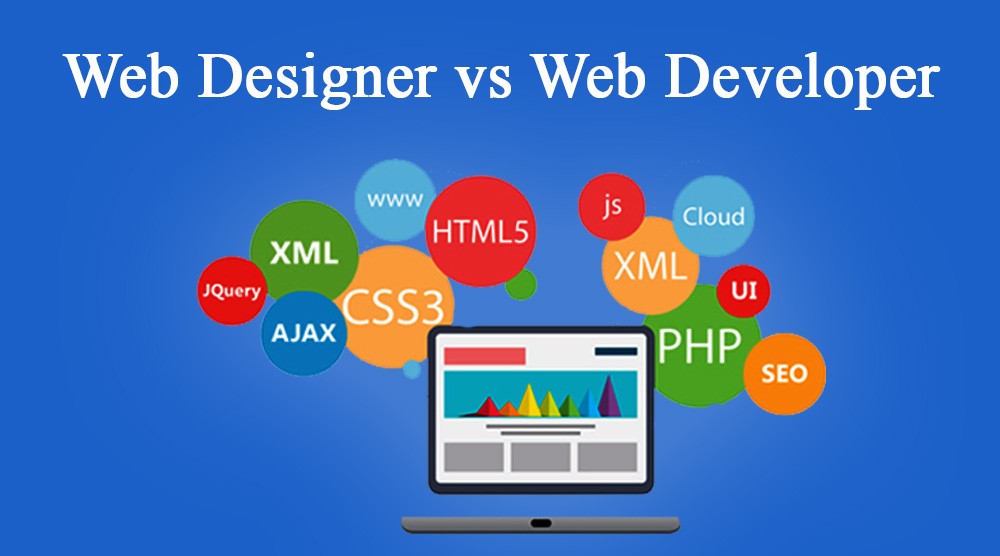Web development is the process of building and maintaining websites. It encompasses everything from creating simple static web pages to complex web applications. For beginners entering the world of web development, it can seem daunting, but with the right approach and mindset, anyone can become proficient.
Importance of Learning Web Development
In today’s digital age, having basic web development skills is invaluable. Whether you’re a freelancer, entrepreneur, or working for a company, understanding web development allows you to create an online presence, showcase your work, and even build your own projects from scratch.
Choosing the Right Technologies
One of the first steps for beginners is selecting the right technologies to learn. Start with the basics: HTML for structuring web pages, CSS for styling, and JavaScript for interactivity. These form the foundation of web development and provide a solid starting point for further learning.
Understanding Responsive Design
With the proliferation of mobile devices, responsive design has become essential. Ensure that your websites are accessible and user-friendly across different screen sizes and devices. Learn about CSS frameworks like Bootstrap to streamline the process of creating responsive layouts.
Version Control with Git
Git is a powerful tool for managing code changes and collaborating with others. Learn how to use Git and platforms like GitHub to track your changes, revert to previous versions if needed, and collaborate with other developers.
Practice Regularly
Like any skill, practice is key to mastering web development. Dedicate time each day to coding, whether it’s building projects, solving coding challenges, or exploring new technologies. Consistency is key to progress.
Utilizing Online Resources
The internet is a treasure trove of resources for learning web development. Take advantage of online tutorials, courses, and documentation to expand your knowledge. Websites like Codecademy, freeCodeCamp, and MDN Web Docs offer comprehensive resources for beginners.
Debugging and Problem Solving
Debugging is an essential skill for any developer. Learn how to troubleshoot common issues, use browser developer tools effectively, and search for solutions online. Remember, every error is an opportunity to learn and improve.
Creating Clean and Readable Code
Writing clean, readable code not only makes your life easier but also benefits others who may work on your code in the future. Follow best practices, use meaningful variable names, and format your code consistently to improve readability.
Learning from Mistakes
Don’t be afraid to make mistakes; they’re an inevitable part of the learning process. Instead, embrace them as learning opportunities. Analyze what went wrong, understand why it happened, and use that knowledge to improve your skills.
Importance of SEO in Web Development
Understanding the basics of SEO (Search Engine Optimization) can help your websites rank higher in search engine results. Learn about on-page optimization, meta tags, and creating high-quality content that resonates with your audience.
Security Measures
Security is paramount in web development. Familiarize yourself with common security threats like SQL injection and cross-site scripting, and learn how to mitigate them. Follow best practices for securing your websites and staying one step ahead of potential attackers.
Building a Portfolio
As you gain experience, start building a portfolio of your work. Showcase projects you’ve completed, contributions to open-source projects, and any freelance work you’ve done. A strong portfolio is essential for landing freelance gigs or job opportunities.
Staying Updated with Industry Trends
The field of web development is constantly evolving, with new technologies and trends emerging regularly. Stay updated by following industry blogs, attending conferences, and participating in online communities. Continuously learning and adapting is key to staying relevant in this fast-paced industry.
Conclusion
Web development is an exciting and rewarding field that offers endless opportunities for growth and creativity. By following these essential tips for beginners, you can build a solid foundation for your journey into web development and unlock your potential to create amazing websites and applications.
What programming languages should beginners learn for web development?
HTML, CSS, and JavaScript are essential for beginners.
How can I improve my coding skills?
Practice regularly, work on projects, and seek feedback from others.
Is web development a good career choice?
Yes, web development offers excellent career opportunities and job stability.
Do I need a degree to become a web developer?
While a degree can be helpful, many successful web developers are self-taught or have completed coding bootcamps.
How long does it take to learn web development?
The time it takes to learn web development varies depending on individual dedication and learning pace, but with consistent effort, beginners can start building websites within a few months.













